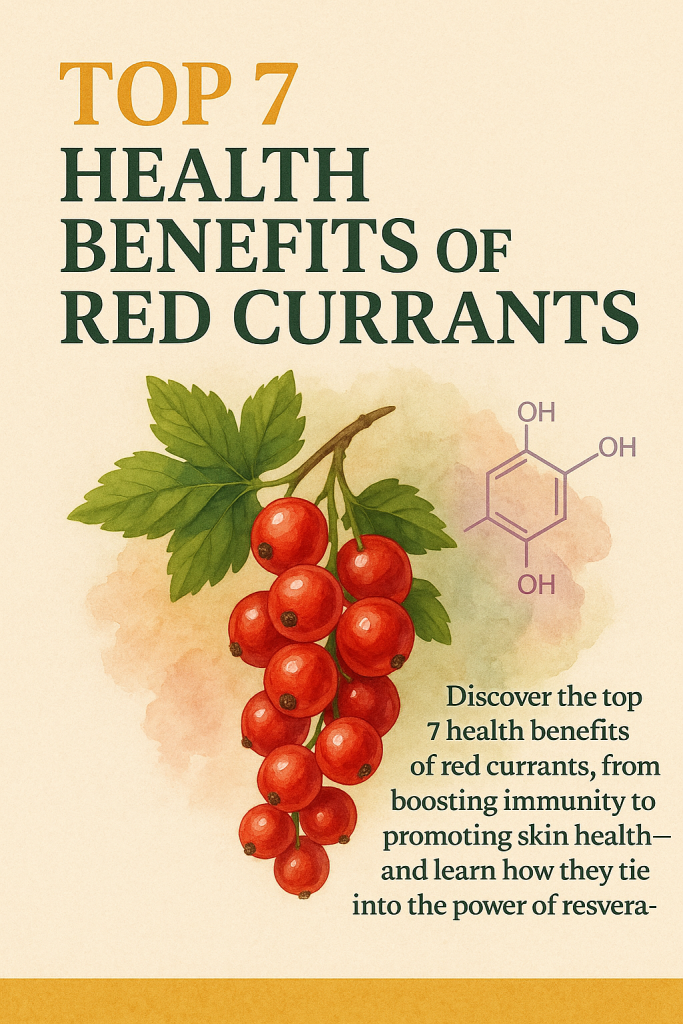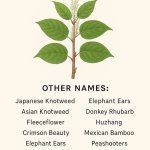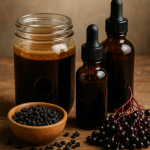Red currants may be tiny, but these jewel-like berries pack a powerful nutritional punch. From supporting your immune system to promoting radiant skin, red currants are more than just a tart summer treat—they’re a superfood you’ll want in your diet. At Benefits Of Resveratrol , we’re all about spotlighting foods that enhance health naturally, and red currants are a perfect fit.

1. Rich in Antioxidants
Red currants are loaded with antioxidants, particularly vitamin C and flavonoids, which help neutralize free radicals and reduce oxidative stress. This antioxidant profile supports overall cellular health and may contribute to slowing down the aging process.
2. Support Immune Function
With over 40% of your daily vitamin C in just one serving, red currants are a natural immune booster. This essential nutrient enhances white blood cell function and supports your body’s natural defense mechanisms.
Red currants are a powerhouse when it comes to immune-boosting nutrients, with a single cup providing more than 40% of your recommended daily intake of vitamin C. This essential vitamin plays a critical role in strengthening the immune system by enhancing the function of phagocytes (cells that engulf harmful pathogens) and supporting the production of lymphocytes, which are key players in your body’s defense network.
In addition to vitamin C, red currants contain small amounts of vitamin A and vitamin E—both of which contribute to immune regulation and the maintenance of mucosal barriers, your body’s first line of defense against bacteria and viruses. The presence of anthocyanins and other polyphenols also helps modulate inflammation, which is essential in preventing the immune system from becoming overactive and damaging healthy tissues.
Together, these compounds create a well-rounded nutritional profile that supports both innate and adaptive immunity, helping your body not only fight off infections more effectively but also recover more quickly.
3. Promote Heart Health
Red currants contribute to cardiovascular health by reducing inflammation and improving blood circulation. Their polyphenol content, similar to what you find in red wine and grapes, may help regulate blood pressure and cholesterol levels.
Red currants are a heart-smart addition to any diet, thanks to their rich content of polyphenols—plant compounds known for their cardioprotective properties. These include flavonoids like quercetin and anthocyanins, which help reduce inflammation and oxidative stress, two key contributors to cardiovascular disease.
One of the standout nutrients in red currants is potassium, an essential mineral that helps regulate blood pressure by counteracting the effects of sodium. A single serving of red currants contains around 275 mg of potassium, making them a smart snack for anyone looking to maintain healthy blood pressure levels.
Moreover, the dietary fiber found in red currants supports cardiovascular health by helping to lower LDL cholesterol levels. Soluble fiber binds to cholesterol in the digestive system and aids in its removal from the body, reducing the risk of arterial plaque buildup.
The antioxidant profile of red currants also helps protect the delicate lining of the blood vessels (the endothelium), improving vascular function and reducing the risk of atherosclerosis. When consumed regularly as part of a balanced diet, red currants may help maintain flexible arteries, steady circulation, and an overall healthier heart.
4. Boost Digestive Health
Thanks to their high fiber content, red currants aid digestion and help maintain a healthy gut. Fiber promotes regular bowel movements and nourishes beneficial gut bacteria, contributing to a balanced microbiome.
5. Support Healthy Skin
The antioxidants in red currants help protect the skin from damage caused by UV rays and pollution. Vitamin C, in particular, plays a crucial role in collagen production, keeping your skin firm and youthful.
6. Help Manage Blood Sugar Levels
Despite their naturally tart-sweet flavor, red currants have a low glycemic index (GI), meaning they cause only a gradual rise in blood glucose levels after consumption. This makes them a smart fruit choice for individuals managing type 2 diabetes or those aiming to avoid energy crashes associated with high-GI foods.
The key to red currants’ blood sugar–friendly profile lies in their combination of fiber, antioxidants, and naturally occurring fruit sugars (primarily fructose and glucose). The dietary fiber—particularly soluble fiber—slows the digestion and absorption of carbohydrates, helping to prevent sudden spikes in blood sugar. A single cup of red currants contains nearly 5 grams of fiber, which also contributes to improved insulin sensitivity over time.
Additionally, the anthocyanins found in red currants may play a role in glucose metabolism. Emerging research suggests that these flavonoid compounds can improve insulin response and reduce inflammation in pancreatic cells—key factors in maintaining stable blood sugar levels.
Including red currants as part of a balanced, whole-food diet not only satisfies a sweet craving but also supports long-term metabolic health without compromising glycemic control.
7. A Source of Natural Resveratrol Precursors
While red currants themselves are not as rich in resveratrol as grapes, they do contain precursors and complementary polyphenols that enhance the body’s ability to utilize resveratrol. Consuming them alongside other resveratrol-rich foods may have synergistic benefits.
8. How Red Currants Fit into a Resveratrol-Rich Diet
Interested in maximizing your antioxidant intake? Pair red currants with resveratrol-rich foods like grapes, blueberries, or even a glass of red wine. Together, these foods create a powerful defense against aging, inflammation, and chronic disease. Learn more in our Resveratrol Benefits Guide.
Conclusion
Red currants are a delicious and versatile way to support your health naturally. From heart and skin health to immunity and digestion, they deserve a spot in your superfood lineup. Want more ways to harness the power of natural antioxidants? Subscribe to our newsletter for the latest on resveratrol and other nutrient-packed foods.

